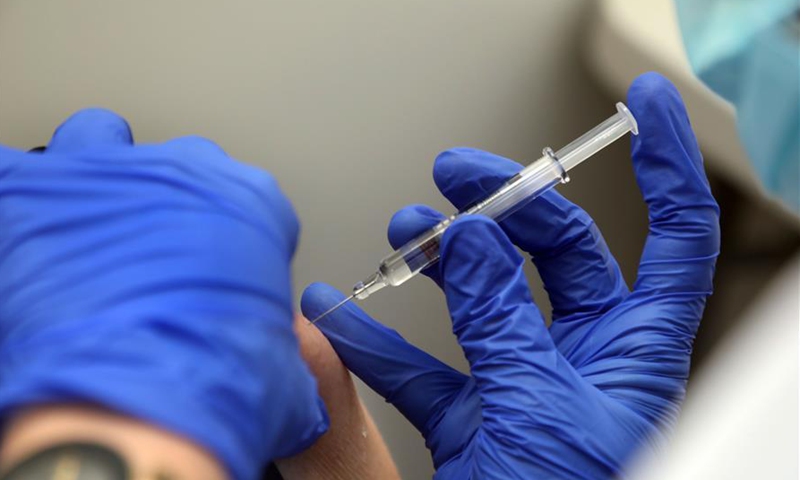Chinese experts say UK vaccine trials risk lives
By Xu Keyue, Xu Yelu and Hu Yuwei Source: Global Times Published: 2020/10/22 21:32:21

Photo: Xinhua
After failure in the infamous "herd immunity" strategy that caused COVID-19 cases to soar, the UK vowed to launch some controversial vaccine trials on humans known as challenge trials to speed up the race to find a vaccine for COVID-19. Chinese experts believe the trials "risk human life" and are "ethically challenged."
According to the media, Imperial College London and a group of researchers said Tuesday that they are preparing to infect 90 healthy young volunteers with the virus, becoming the world's first to announce plans to use the technique after the country's government approved.
The volunteers will be vaccinated and intentionally exposed to the potentially deadly virus in order to test vaccines in a controlled environment.
Although some medical experts view them as ethically questionable, the benefit of challenge trials is that they can determine vaccine efficacy very quickly (as quickly as two months), much shorter than typical late-stage studies, media reported.
Regulatory and ethical approvals are also still pending, although these are expected to be received by November or December of this year, said US-based ABC News on Tuesday. The trials will likely begin next spring or summer, said the report.
However, the trials have sparked massive public questions.
UK Deputy Chief Medical Officer Professor Jonathan Van-Tam warned that the trials might not even be overwhelmingly successful. He noted that previous attempts at finding vaccines have proved elusive.
Swarms of British netizens expressed their worries and rage on Twitter.
"I think it's irresponsible to claim it's a promising approach… it is likely to kill volunteers!" a netizen tweeted
The UK government is "gambling with the health and even lives of the volunteers," said medical experts.
Zhai Xiaomei, a Beijing-based expert of bioethics and health policy, also executive director of the Chinese Academy of Medical Sciences, said that it's not the time to carry out this experiment at present, since there is little information about the hazards of the novel coronavirus and this experiment is challenging in terms of ethics.
Zhai said that an important basic indicator for conducting this type of experiment internationally is that the disease is well understood and effective treatment is available. However, the novel coronavirus is quite unusual, and there is no specific medicine, so the safety of the volunteers cannot be guaranteed.
She said that the risk is too great.
Yang Zhanqiu, a deputy director of the Pathogen Biology Department at Wuhan University, said that "The advantages of this type of experiment is that it is highly efficient and antibodies in recipients can last longer."
But he pointed out that the experiment will cause irreversible physical damage to the volunteers, increasing the risk of infection and death, which other experiments would not have.
As of Thursday night, confirmed cases of COVID-19 reached 792,203 in the UK, with 44,248 deaths, according to data from the John Hopkins University.
According to previous media reports, the UK tried herd immunity in March, which was a disaster. Infections and deaths soared. The plan was publicly abandoned by the country's government when it became clear that it was failing demonstrably and dangerously, said media.
Posted in: SOCIETY